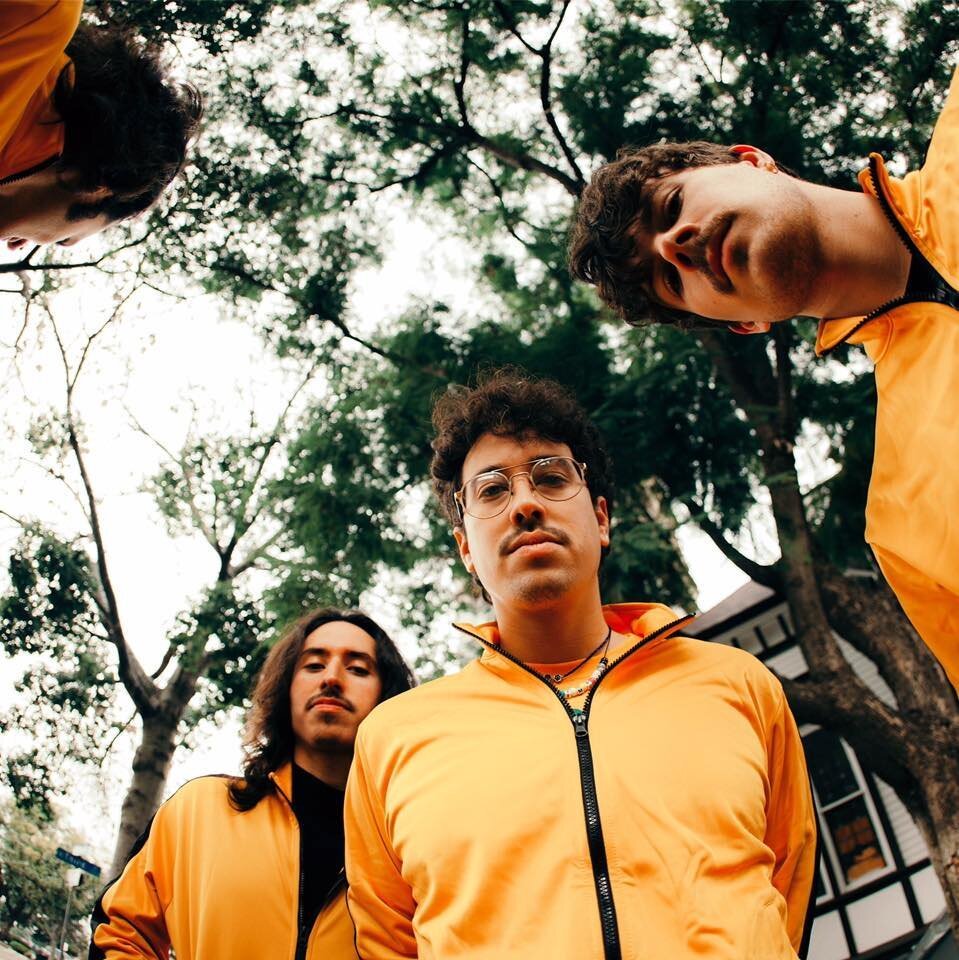Hate Drugs: No Speedometer Needed
“Betty,” a pearl white Chevrolet 3500 van bustled across state highways speedometer-less after being purchased by a bunch of hooligans from a Mexican church for four grand. She ran as her owners did: chaotically, directionless, but with an engine of gold.
Hate Drugs is a group that for all intents and purposes have “made it.” They’ve dabbled in success, had their hit song chart the indie playlists, and have a social media presence that glows with pastel allure. For most indie bands, this is the dream. For artists, this is a wonderfully horrifying series of events.
“Never Wanna Leave,” Hate Drugs’ hit off of their 2016 EP Beach Weekend is a methodical, slow-burning three and a half minutes. Simplistic sounding, easy-going, and with a bass line that practically smells like Urban Outfitters, it is no doubt that this song blasted Hate Drugs into the sort of fame that indie music tends to pull artists into. The one where fans vaguely recognize a tune or two on a distant playlist but rarely go beyond that.
Before they could say “thanks,” Hate Drugs was lumped in with the surf rock scene without a second thought. Being a “one-hit wonder” is perhaps the greatest fear of musicians, even more so than not making it at all. Time and time again, I’ve seen septum-pierced, stick-n-poke lead singers dismally sing their hits over and over again, lacking any sort of energy or hint of adoration for the song that gave them their success. I wondered if Hate Drugs got sick of performing “Never Wanna Leave” or “Sleep When We’re Dead,” both popular songs off of their first release. To my surprise, the group laughed when I brought up the song.
You’d think after grossing more than two million streams on Spotify, there’d be a whole conversation about that one release that the Internet ate up. But there wasn’t. Simply, it was a song on their first release that was a blessing but was certainly not the whole story.
“‘Never Wanna Leave' doesn’t really feel like it represents us. People who are genuine fans typically don’t come out to see us for that one song. We’ve probably played it like five times live… tops,” lead singer, David Capole expressed.
Since 2016, Hate Drugs have released eight singles, two EPs, and two full-length concept albums with hints at a third. These more recent releases are far more coherent, sophisticated, and show how much Hate Drugs has to offer. These projects act as a bridge between Hate Drugs of the past and Hate Drugs of the future.
Tsunami Soul I and II are both highly complex albums that show the group branching out from the roots of their first EP. The albums aren’t your typical conceptual albums with one greater message or meaning. Rather, each song feels like an episodic glimpse into what it means to be a young person today. From young love to finding homes away from home, Tsunami Soul I and II explore all the different facets of being young. The songs are every bit as frantic, dynamic, and complex as the journey of “coming of age” is, and sound is un-judging and expressive. These albums mirror the journey of the artists behind them.
Hate Drugs is going through their “coming of age” story in their sound right now. Their releases are bumpy at moments and swimmingly smooth at others, which is what makes their music both meaningful and teasing. The listener knows there is so much more for the group to offer. Hate Drugs is quite literally showing what it means to “make it,” the hurdles of trying to stay relevant in a scene that is constantly tugging the refresh screen, and the struggle of creating a sound that will last forever.
Aside from the general pressure of “making it,” Hate Drugs also faces a massively competitive scene in Los Angeles. They are surrounded by tons of other bands that have also gained success in the indie scene. What sets Hate Drugs apart from a lot of these other groups is the fact that you can’t quite figure them out.
Are they just lucky surf-rock stoners? Maybe pop-rock hippies? Whatever the answer is, Hate Drugs has the clarity that allows them to create a genuine sound that isn’t conflicted with the desire to compete with other groups in the area.
Centered in Bakersfield, California, Hate Drugs is relatively distant from the cluttered Los Angeles scene and can focus on their individual work rather than climbing up a hidden social ladder towards success. Hate Drugs has a striking sense of independence that is the key to their ongoing success in creating music. They don’t want to sound like every other competing group. They don’t want to be comfortable in one sound. They want the best that they can be.
“We are going into 2020 manager-less, label-less, booking agent-less, five years in with all of our produced music out there. We will be a new band. A new sound entirely,” Capole finishes. With their fearless attitude and the desire to be as great as they can possibly be, Hate Drugs will launch into the new year with all the equipment they need to be successful.
They don’t need to rely on their old singles to make it happen, nor do they even need a speedometer. They’re going fast, and that’s all they need to know.
Until next time,
Rocka Out
Find Hate Drugs.

